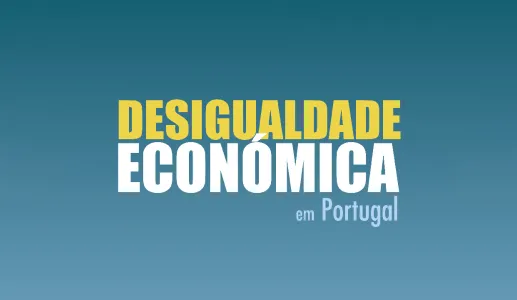
Economic Inequality in Portugal
The annual publication by Eurostat and the National Statistics Institute (INE) of indicators of inequality in the personal distribution of income in Portugal and their comparison to those of the other European Union (EU) countries usually prompts a series of public statements and opinion articles where Portugal's position as one of the countries with the highest levels of economic inequality in the EU is almost unanimously deplored and condemned. However, the indignation shown at the levels of inequality rarely translates into an in-depth assessment of the characteristics of this inequality, its main determinants and a correct assessment of how it has changed over time.
The aim of this study, one of the first to be commissioned by FFMS and also one of the first to be published, was to try to identify some of the main characteristics of economic inequality in Portugal, to assess which sectors of society are most affected by changes in income distribution, which sources of income contribute most to inequality and what the main trends have been in Portugal in recent decades, looking at issues such as:
- What is the extent of income inequality among the Portuguese?
- How has inequality changed in Portugal?
- Which factors explain inequality in Portugal?
- What impact do social benefits and the tax system have on inequality in Portugal?
The study, coordinated by Carlos Farinha Rodrigues, presents an in-depth analysis of the changes in economic inequality in Portugal over the last few decades. It makes it possible to identify some of the main characteristics of this reality, to assess which sectors of society are most affected by changes in income distribution and which sources of income contribute most to inequality. The results obtained confirm that Portugal remains one of the most unequal countries in the European Union.
Although the analysis of inequalities is important in itself, it takes on added relevance in this study when it is interpreted as a structuring element in the analysis of the living conditions of individuals and families, as an essential component in determining the level of well-being of the population as a whole. Thus, although economic inequalities are the focus of this work, it also addresses issues related to living conditions, social well-being and economic poverty insofar as these are influenced, or even determined, by income distribution.
This work on economic inequalities in Portugal is part of what the main goal of FFMS has been from the outset: to study and make the country's reality known to the interested public, and thus contribute to broader and more informed public debate on the major issues facing Portuguese society.




